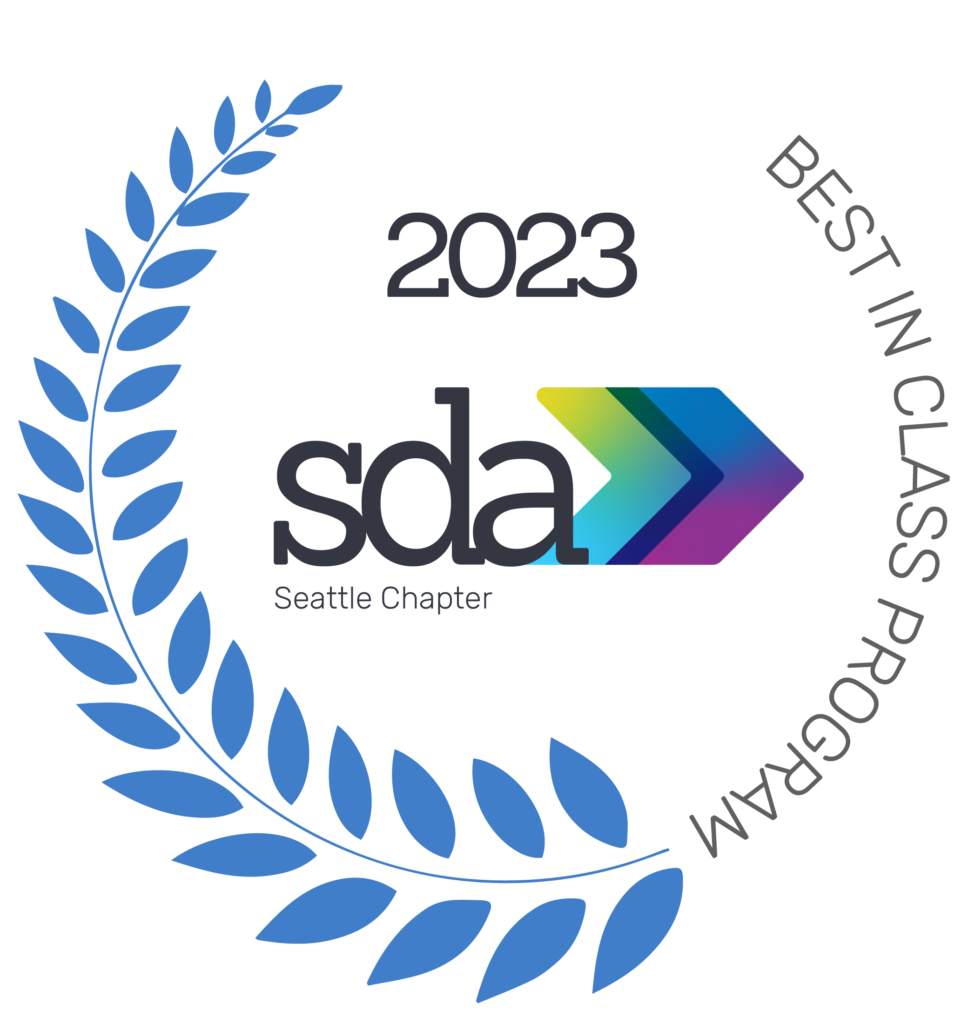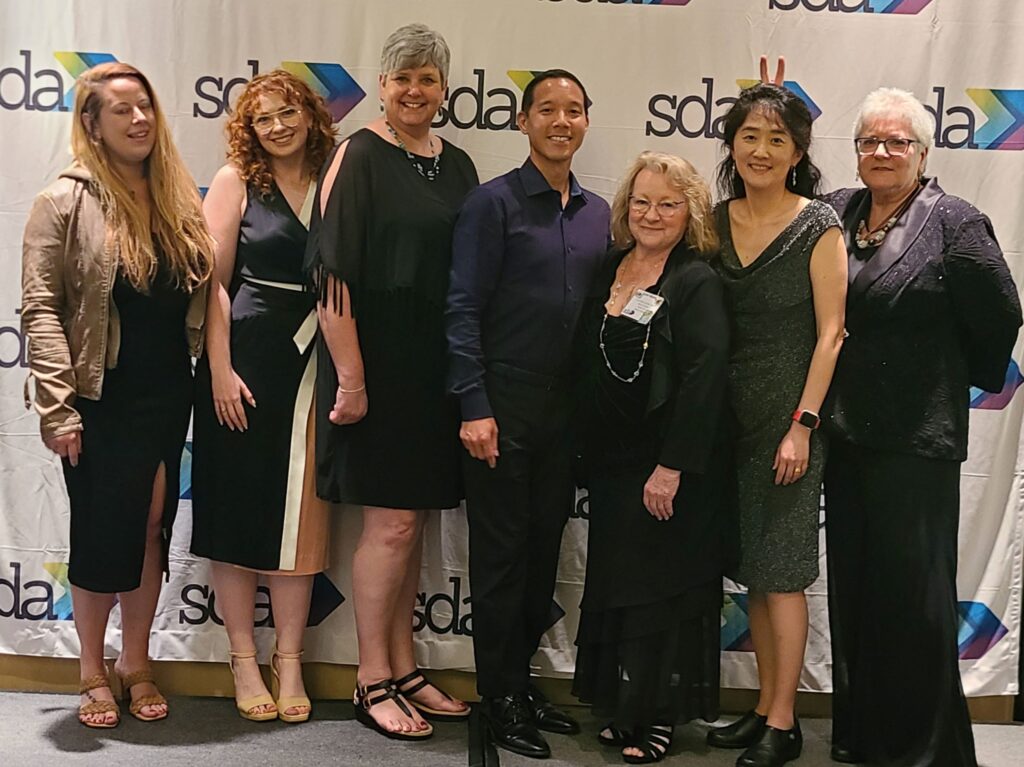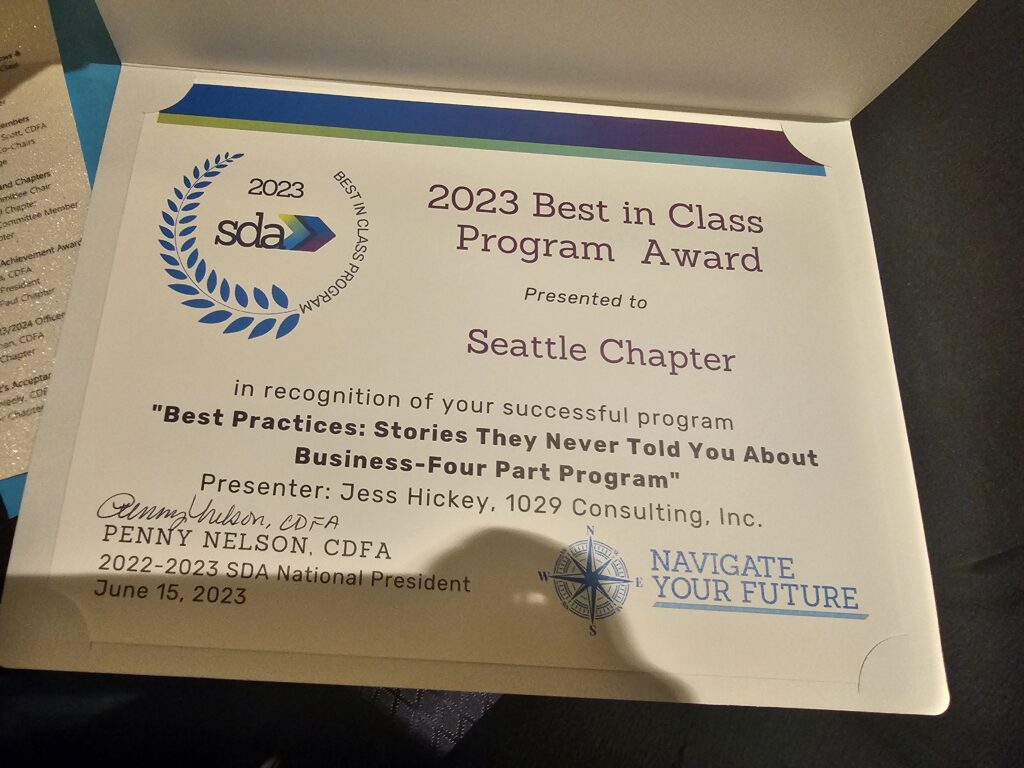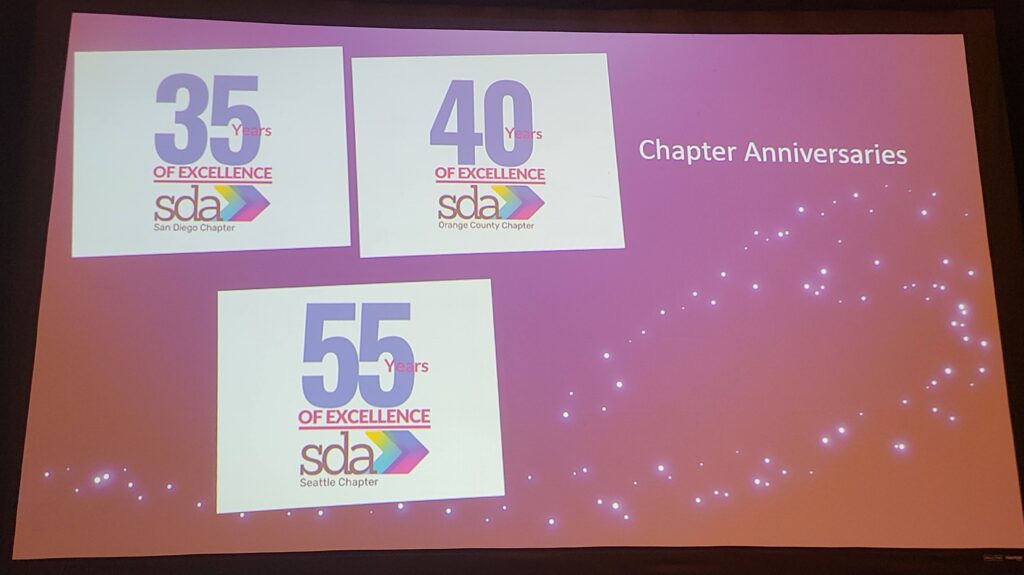The Seattle Chapter was the proud recipient of the 2023 Best In Class Award: Program Winner for our 4-part educational series presented by Jess Hickey, titled “Stories They Never Told You About Business.” The presentations covered finance, human resources, marketing, and administrative topics, and everyone resonated with Jess’ honest, down-to-earth communication style and wit.
This is the first time we’ve done a series like this, and it was successful by all measurements; it was well-attended, received positive feedback, included tips that we could use immediately, and was enjoyable to attend. Having four guaranteed presentations took a little weight off the planning of our education calendar and attendees knew what to expect. They resonated with her speaking style, and Jess did a great job overlapping just enough fill any gaps between sessions without wasting time rehashing what we’d already learned.
Congratulations, Seattle!







 Huge shout-out to
Huge shout-out to 

You must be logged in to post a comment.